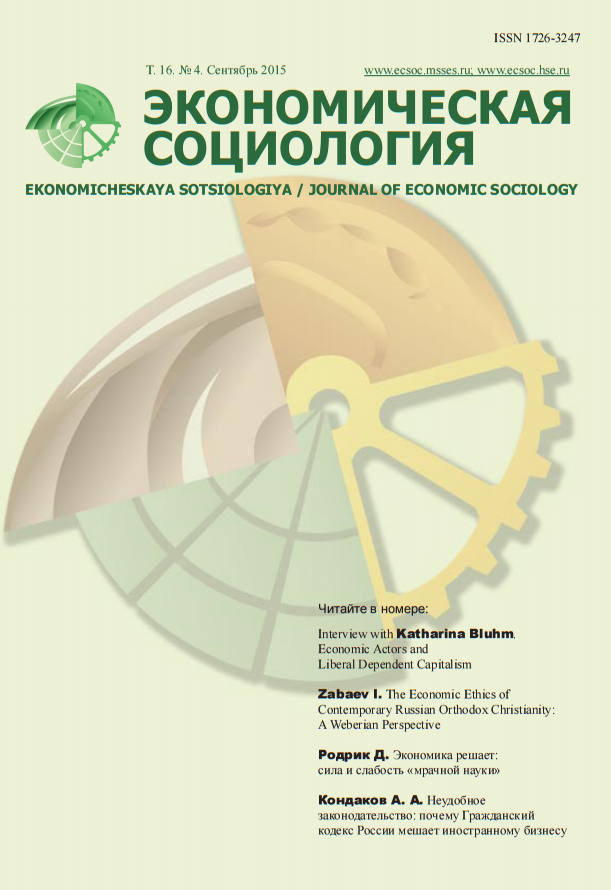The Uncomfortable Law: Why the Civil Code of Russia is a Constraint for International Business
Abstract
This article explores the conceptual bases of civil law in Russia by employing the method of deconstruction. The main aim of the analysis is to uncover a particular configuration of power that is reproduced in the text of the Civil Code. As a point of departure, a review of theoretical assumptions of civil law is introduced from the sociology of law perspective. In order to contextualize idealistic conceptions of law, this article draws on materials from an empirical study of top-managers and corporate lawyers. Field research included 17 interviews with corporate lawyers and top-managers of international companies from Finland, Germany and the US that operate in Russia. Analysis of interviews identifies contexts in which law is problematized, which relate to power relations in business. In the interviews, the informants tend to define a wide circle of troubles in their business activities. However, the main issue that they discuss is various legal requirements set by Russian law which the international managers do not understand; these are always related to bureaucracy. This allows us to approach the text of law in a new way: to identify those fragments of the text that privilege state apparatus over private interactions. Based on this methodology, this article offers a conceptual analysis of the Civil Code of the Russian Federation that makes visible how exactly law turns from a tool of successful business to a barrier, hindering everyday business activities of international corporations in Russia. Despite the fact that the Civil Code includes provisions which support free private interactions and do not limit them, this is only a facade that hides the configuration of power relations that allows for the subjection of commercial agreements to the power of state bureaucracy.
.













